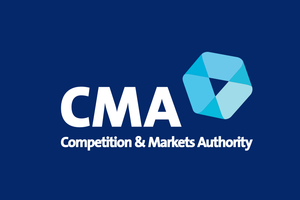How should competition policy react to coronavirus?
IPPR has today published a paper by CMA Chairman Andrew Tyrie, discussing how competition policy can contribute to a robust and sustainable post-crisis recovery.

The paper - How should competition policy react to coronavirus? - explores the short and long term consequences of the coronavirus pandemic for markets and competition.
In the short term, Lord Tyrie argues that competition policy has a crucial role to play, both in protecting consumers from exploitative practices, and in ensuring enforcement does not stand in the way of necessary business co-operation. He explains how the Competition and Markets Authority (CMA) has already broken new ground, performing these functions through the creation of its emergency Coronavirus Taskforce.
In the longer term, Lord Tyrie argues that the pandemic is likely to cause enduring changes to consumer behaviour, businesses, supply chains and the regulatory environment. These changes may aggravate already rising market concentration, the growing power of digital markets and deepening public distrust of markets. This is likely to create a number of major challenges for competition policy. Among the most important of these is to ensure that the temporary subordination of competition to other policy objectives in the context of the coronavirus does not become entrenched.
CMA Chairman Andrew Tyrie said:
Coronavirus is likely to make the economy less competitive and consumers more vulnerable. The CMA has already acted on a number of short term threats, such as price gouging and breaches of consumer law. The challenge now is to put in place those measures most likely to sustain a durable economic recovery. That will require, among other things, measures to secure a more competitive economy and better protection for consumers.
Taxpayer support to business, and special exclusions from competition law, are liable to create a new group of vested interests, which would stand to benefit from continuing to be insulated from normal competitive forces after the crisis has receded. Competition authorities will need to provide robust and authoritative advice to Government on when and how crisis measures should be unwound, and on any opportunities that may arise from the crisis to address a number of pre-crisis distortions.
This paper was authored by Lord Tyrie with input from the CMA’s Chief Economist and members of the Senior Executive Team. It is published by the think tank the Institute for Public Policy Research (IPPR). Read more about IPPR.
Read more about the CMA’s response to the coronavirus pandemic.